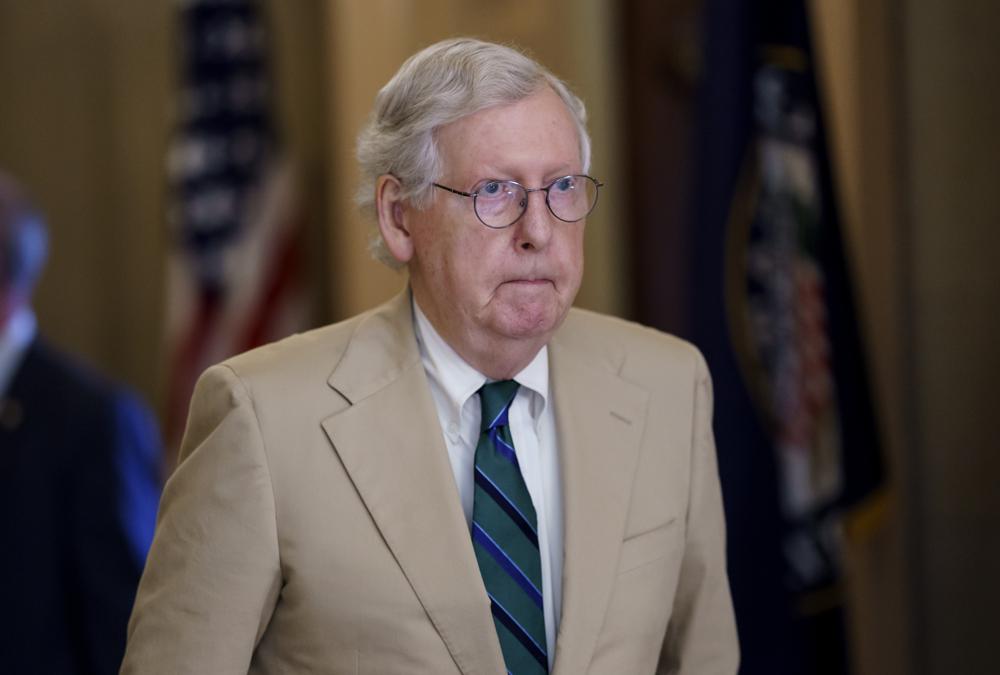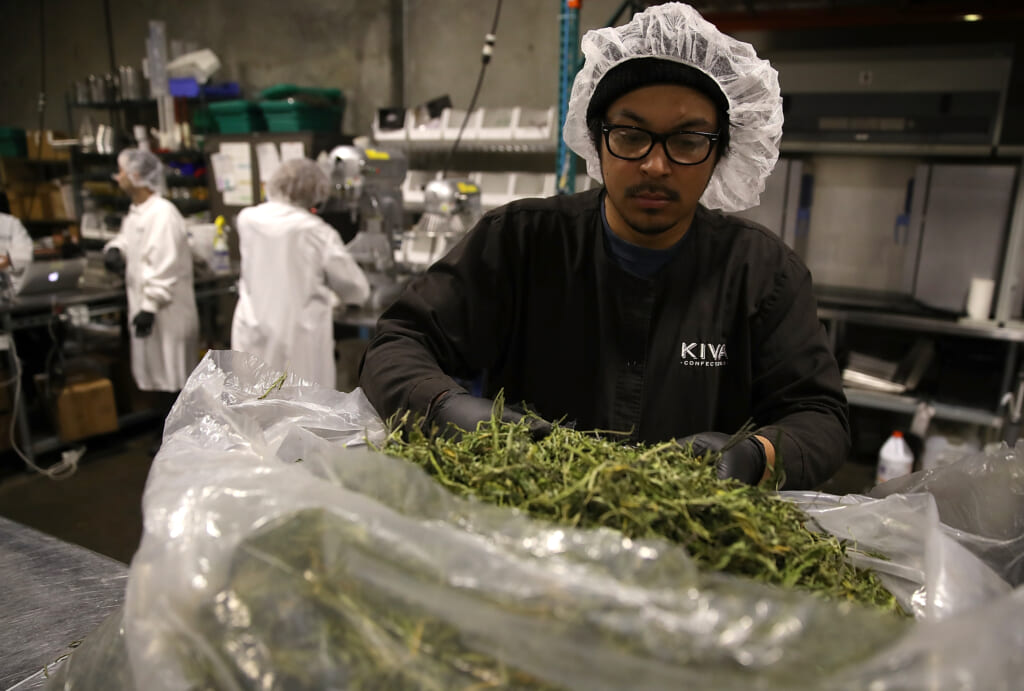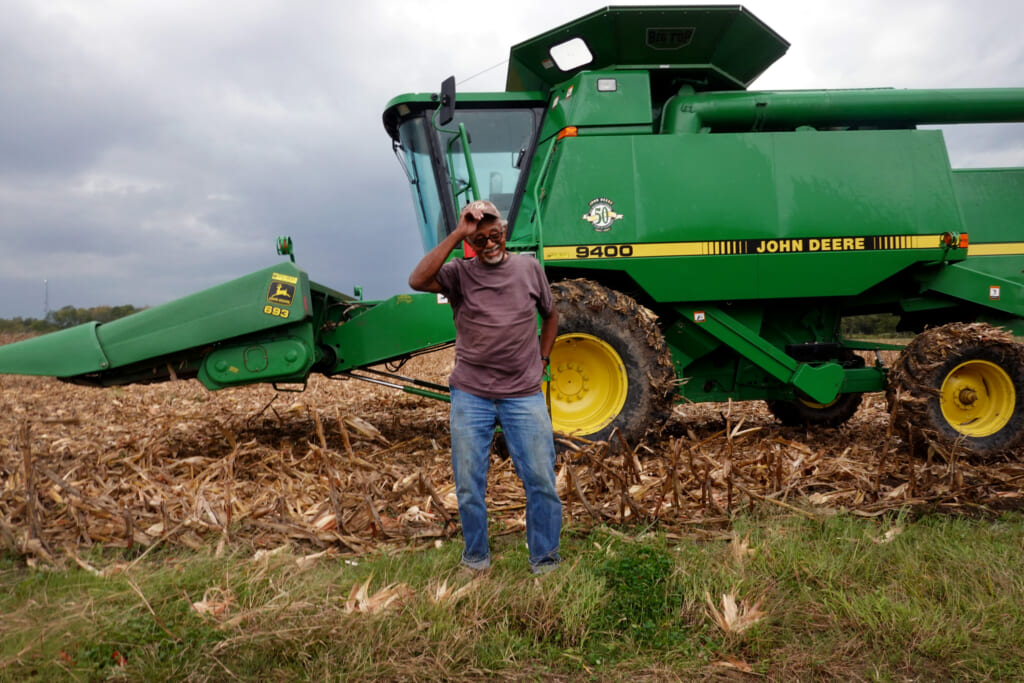Black participation in the cannabis industry is an uphill battle
EXCLUSIVE: Much of the challenges hinge on the financial requirements to operate businesses tied to marijuana and succeed in pilot programs for hemp.
Black participation in the cannabis industry has been focused on two main issues — restorative justice programming and legalization. But Black business owners say underrepresentation in the space is more complicated.
Much of the challenges hinge on the financial requirements to operate businesses tied to marijuana and succeed in pilot programs for hemp.
“I wouldn’t even say that the big corporations are making money,” Amber Senter, co-founder of Supernova Women told theGrio as she compared the plight of smaller minority-owned cannabis businesses to its larger competitors. “They’re able to raise enough money and have enough money to be able to continue moving forward at a loss.”
Marijuana and hemp are derived from the same plant but vary in maturity stages, THC levels and business requirements. In 2018, hemp was legalized at the federal level through the passing of the 2018 Farm Bill. On the surface, it appeared odd that then-Senate Majority Leader Mitch McConnell (R-Ky) would legalize one side of cannabis and not the other. But with a closer look, it became obvious that the action benefited farmers in his state who lead the nation in hemp production.

Marijuana has been decriminalized and legalized at the state level in many locations across the United States, according to a recently published guide to CBD, but without federal approval, business owners say they are heavily taxed by states and do not have the relief of filing federal tax deductions. The financial squeeze results in a tremendous profit cut for the business owners. It also creates a tough environment for Black entrepreneurs in cannabis because it requires more liquid funds to operate in the marijuana industry.
“At the end of the day, the cultivation tax ends up affecting the entire supply chain, starting with the cultivators, and then the manufacturers and distributors,” Senter highlighted.
Senter has been leading the charge to get California to lift its cultivation tax in an effort to promote more racial equity in the industry. According to Senter, the hefty taxation of marijuana adds to the financial challenges many legal businesses face as they compete with the Black market weed sales in the state. She also believes the tax conflict in California should be followed closely by marijuana business owners in states that have recently legalized it.
“It makes it difficult to be sustainable,” John Hudak, a senior fellow in Governance Studies at the Brookings Institution, explained to theGrio. “People who are setting tax policy on cannabis don’t give a damn about small cannabis businesses and they don’t give a damn about minority cannabis businesses.”
“That’s an unfortunate reality in cannabis policy right now,” he added.
Legalization would open the door to making the marijuana side of the cannabis industry more financially accessible but even that does not guarantee a breakthrough in Black representation in the cannabis industry.
Hemp growers in pilot programs on the east coast told theGrio they were targeted and were discouraged from continuing to cultivate in the federal legalized side of the cannabis industry.

Matt Bruce, the owner of Herbal Vybz and a hemp grower in New Jersey, told theGrio he believed he was discriminated against through several incidents of microaggressions he experienced when interacting with an official of the New Jersey Department of Agriculture. The dynamic poisoned the well with the landowner who was initially leased to him. Bruce was also discouraged from applying for a cultivation license.
The entire ordeal put Bruce back at square one with his pursuit to cultivate hemp in the state. He notified the state’s Office of Equal Employment Opportunity/Affirmative Action of the issues, and is now awaiting approval to restart the program.
“I’m just hoping that I can move forward peacefully,” Bruce said.
Bruce decided to share his story, not to dissuade others from the industry, but to encourage Black farmers to consider cannabis cultivation as a career.
“I need to see other Black people in this program. It doesn’t make any sense to me,” Bruce emphasized. “We’ve been forced to understand that farming is connected to slavery, and we got to get out of that mentality. We need to understand that’s the direction we need to move back to.”
For other hemp growers, the expense of cultivation and the risk of a failed crop lends to the experience Black farmers know all too well — the feeling that everything is one the line.

“I was out there for like two months, you know, I’m trying to figure out how not to lose everyone’s money,” Joshua Hambert, head of business development for Gullybean, told theGrio. Gullybean is a Black-owned hemp farm in New York.
Humbert is optimistic that his brand’s investment in learning the art of hemp cultivation will make for an easy transition into marijuana cultivation when New York State has its pilot program finalized.
“We understand exactly what to do and how to do it and the consequences and the risks that come along with it,” Humbert said. “Knowing that we’re ready for the marijuana space, it’s absolutely even more incredible. Like now I have no reservations about what it’s going to take to do that.”
Whether it’s financially burdensome marijuana or federally legal hemp, Hudak explained that the pros and cons of both sides of the cannabis industry balance out.
Hudak attributes an overproduction of hemp to be the source of a bubble in the cannabis industry. He thinks that while marijuana is an expensive business to operate, hemp is harder to make the case for being as lucrative based on how it is utilized as a product and the abundance of it. He points to the overproduction of hemp in Oregon as an example of this looming market challenge.
“And when that bubble burst, of course, who were the first people to get hurt, it was Black and Brown farmers,” Hudak said. “And I think the same thing is gonna happen, even in states that have low barriers to entry in the cannabis space.”
TheGrio is now on your TV via Apple TV, Amazon Fire, Roku, and Android TV. Also, please download theGrio mobile apps today!”
More About:Business




